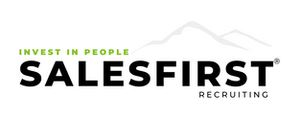Inspect What You Expect
Every sales rep has heard this motto before. "Inspect what you expect" can be a daunting phrase for many sales professionals, often evoking a sense of scrutiny or pressure. Yet, it stands as a fundamental pillar of effective sales management, honed by some of the globe's largest and most prosperous companies. Its effectiveness lies in fostering clarity, accountability, and a pathway to continual improvement. Here’s a practical guide on how to implement this principle:
Start by Setting Clear Expectations
To effectively inspect what you expect, clarity in goals is paramount. Define what success looks like for your team with specific, measurable targets. For instance, rather than vaguely urging sales increases or working harder, outline precise metrics such as closing 10 new logos per quarter to hit a specific revenue goal. Provide explicit guidelines on how to achieve this, such as making 75 weekly prospecting calls to secure 10 appointments, which result in 10 closed deals per quarter.
Install Regular Monitoring and Feedback
Once expectations are set, the next step is implementing regular monitoring and providing constructive feedback. Here are some effective strategies to establish this:
It’s 2024, so let’s assume you have a simple, easy-to-use, cloud-based CRM. If you don’t, get one, and make sure your reps are using it because it helps. If you have to force them to use it, the CRM should be simplified and adjusted to be more helpful.
Avoid micromanagement—refrain from bombarding your team daily with distrustful queries. Instead, schedule collaborative conversations that celebrate achievements and pinpoint areas needing improvement.
When addressing performance issues, avoid focusing solely on outcomes. Take the time to emphasize the process, the learning, the organization, and the time management that needs to be in place to acheive success.
Inspecting what you expect reinforces accountability. When the team knows their work will be reviewed, they're more likely to stay focused and committed. However, if not executed well, this can inadvertently foster a culture of fear. Keep training, stay positive, and be kind.
Commit to Continuous Improvement
Metrics that are dated or at least tied to dated tactics are not helpful, so committing to continuous improvement is key when you're inspecting what you expect. Sales environments change fast, so what works today might not work tomorrow. That's why it's important to regularly review how things are going and adjust your strategies as needed.
Encouraging your team to be curious and innovative is crucial. Talk about new techniques and tools that could make a difference in how they work. Learn from what's happened before to figure out how to do better in the future. When you create an environment where everyone's always learning and adapting, your team stays competitive and ready for whatever comes next in the market. It's not just about keeping up—it's about leading with new ideas and staying strong no matter what challenges arise.
Build Trust and Transparency through Equality
Building trust is crucial when you're inspecting what you expect. It's about creating a team where everyone feels like they're on a level playing field. When everyone understands the goals and how performance is measured, and when they see that management is involved and cheering them on, it builds a sense of fairness and equality across the team.
Let's be real—every sales team has ups and downs. Even the best reps go through slumps. But when there's transparency about what's expected and how performance is evaluated, it helps everyone stay on the same page.
Imagine a team where everyone knows the targets they need to hit and the specific metrics that matter. They see that management isn't just watching from afar but is actively supporting their efforts, and that nobody is above the rules.
Accept the Impact on Turnover
Be aware that instaling this could significantly impact turnover, both positively and negatively. Enforcing proper activity and performance standards means that low-drive sales reps, who may struggle to meet expectations, are often pushed out faster. This can lead to higher initial turnover but ultimately results in a more motivated and capable team. Conversely, high-drive sales reps who thrive under clear expectations and regular feedback are more likely to be recognized and promoted. These high performers then reinforce a culture of excellence, driving overall team performance and reducing long-term turnover as the right people are retained and developed.
Change is Scary
…And while "inspect what you expect" may sound intimidating to many sales professionals, it remains a cornerstone of effective sales management, refined by some of the world's most successful companies for its ability to promote clarity, accountability, and continuous improvement.

